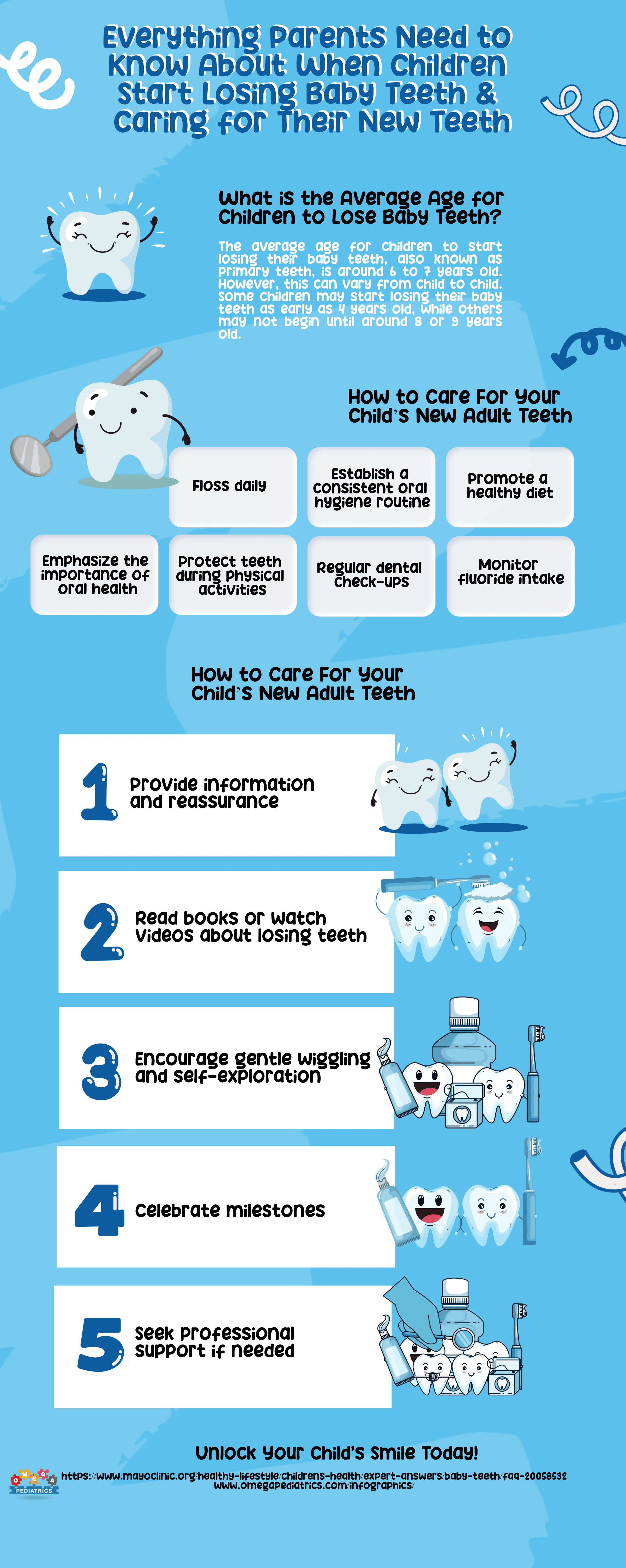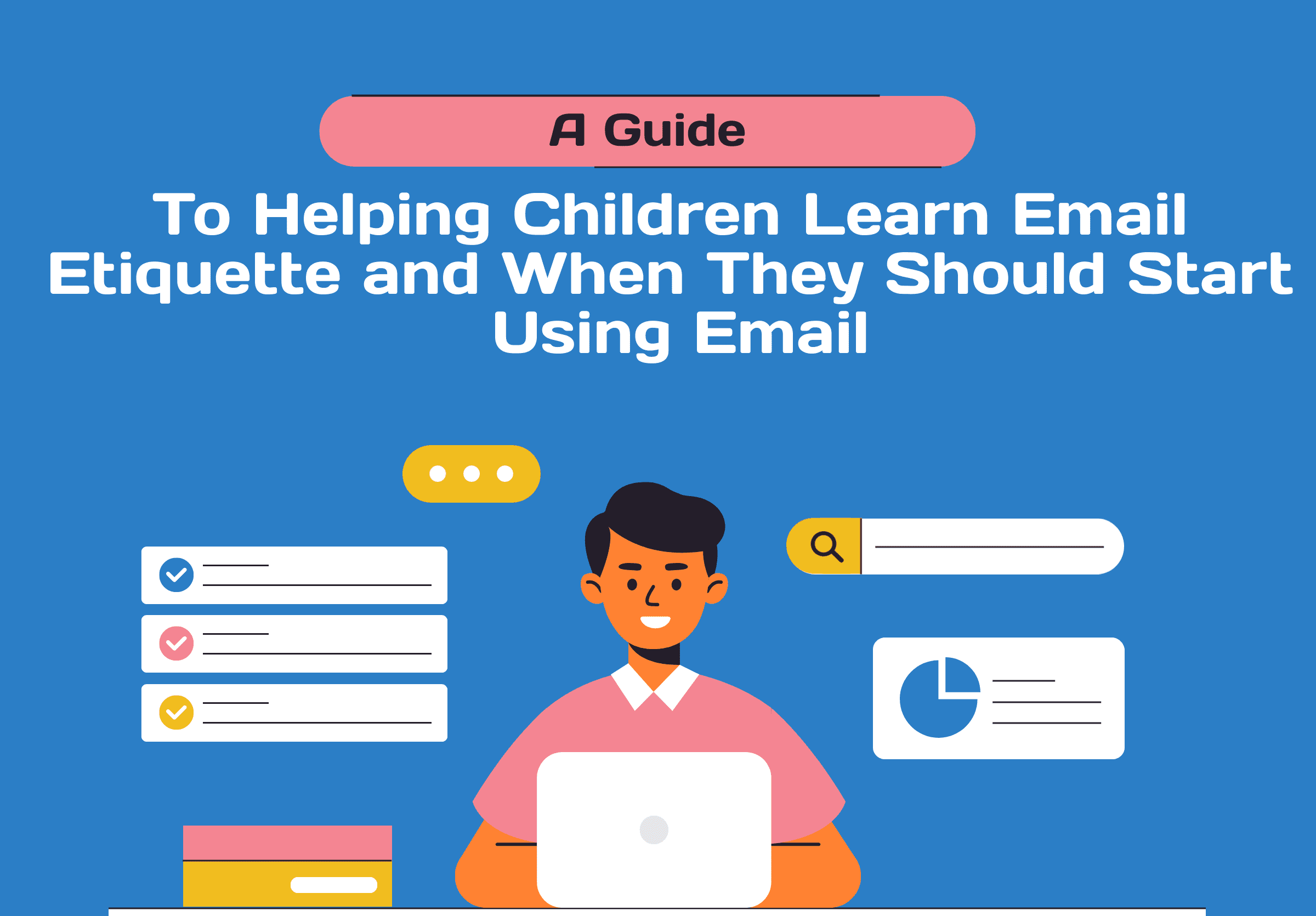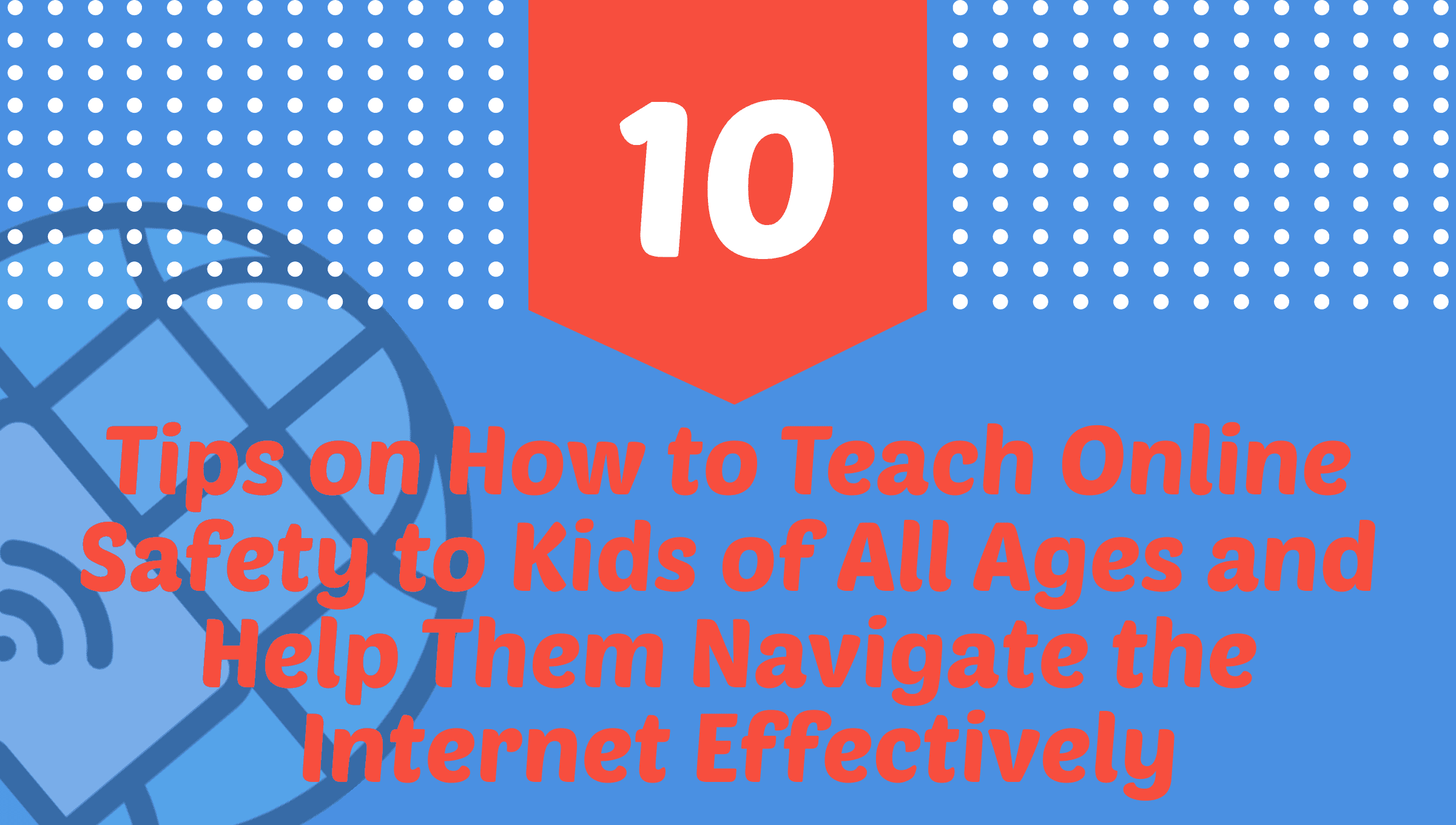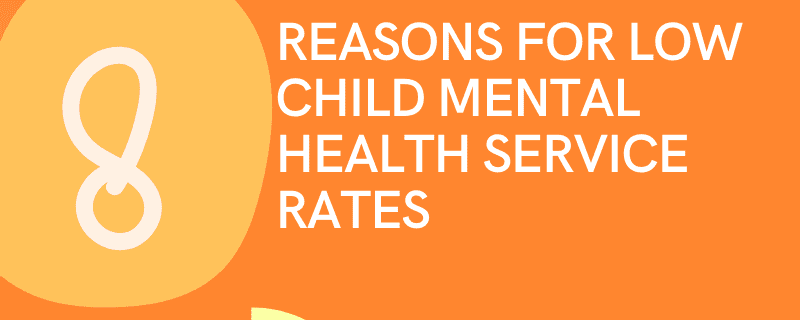What is the Average Age for Children to Lose Baby Teeth?
The average age for children to start losing their baby teeth, also known as primary teeth, is around 6 to 7 years old. However, this can vary from child to child. Some children may start losing their baby teeth as early as 4 years old, while others may not begin until around 8 or 9 years old.
The process of losing baby teeth typically follows a pattern. The front teeth, both upper and lower, are usually the first to be lost. They are often replaced by permanent incisors. The remaining baby teeth, including canines and molars, are then gradually replaced by permanent teeth over time.
It’s important to note that the eruption and loss of baby teeth can vary within the normal range. Factors such as genetics, overall dental development, and individual variations can influence the timing of tooth loss. If you have concerns about your child’s dental development or the timing of tooth loss, it is best to consult a dentist for an evaluation.
How to Care For Your Child’s New Adult Teeth
- Establish a consistent oral hygiene routine: Encourage your child to brush their teeth at least twice a day using a soft-bristled toothbrush and fluoride toothpaste. Teach them proper brushing techniques, including brushing all tooth surfaces and along the gumline. Ensure they brush for a full two minutes each time.
- Floss daily: As soon as your child’s adult teeth start to touch, introduce daily flossing. Teach them how to floss properly and assist them until they can do it independently. Flossing helps remove plaque and food particles from between teeth and along the gumline, preventing cavities and gum problems.
- Promote a healthy diet: Encourage your child to consume a balanced diet that includes plenty of fruits, vegetables, whole grains, and lean proteins. Limit sugary and acidic foods and beverages, as they can contribute to tooth decay. Encourage drinking water and avoiding excessive snacking between meals.
- Monitor fluoride intake: Fluoride is beneficial for dental health, as it strengthens tooth enamel and helps prevent tooth decay. Ensure your child receives an adequate amount of fluoride through toothpaste, drinking water, and, if necessary, fluoride supplements or treatments as recommended by their dentist.
- Regular dental check-ups: Schedule regular dental check-ups for your child, typically every six months or as recommended by their dentist. These visits allow the dentist to monitor the development of your child’s new adult teeth, identify any issues early on, and provide professional cleanings and preventive treatments as needed.
- Protect teeth during physical activities: If your child participates in sports or activities that pose a risk of dental injury, such as contact sports, provide them with a properly fitting mouthguard. A mouthguard can help protect their new adult teeth from trauma and potential damage.
- Emphasize the importance of oral health: Teach your child about the importance of maintaining good oral health. Explain why proper brushing, flossing, and dental check-ups are necessary for keeping their new adult teeth healthy and strong. Instill good oral hygiene habits early on to promote a lifetime of good oral health practices.
5 Strategies To Help Kids Who Have Trouble with Losing Their Baby Teeth
- Provide information and reassurance: Talk to your child about the natural process of losing baby teeth and the growth of permanent teeth. Explain that it’s a normal part of growing up and that everyone goes through it. Reassure them that losing teeth is not painful and that their new teeth will grow in their place.
- Read books or watch videos about losing teeth: There are many children’s books and videos available that discuss the topic of losing baby teeth. Reading or watching these together can help normalize the experience and provide a sense of familiarity and understanding. It can also spark conversations and address any concerns or questions your child may have.
- Encourage gentle wiggling and self-exploration: Teach your child how to gently wiggle their loose tooth with clean hands or their tongue. Encourage them to explore the movement of their tooth without forcing it. This can help them feel more in control of the process and less anxious about the tooth falling out.
- Celebrate milestones: Create a positive and exciting atmosphere around losing baby teeth by celebrating each tooth that falls out. Consider creating a tooth fairy tradition where the child can place the tooth under their pillow and receive a small reward in return. This can help turn losing teeth into a fun and magical experience for your child.
- Seek professional support if needed: If your child’s anxiety or difficulty with losing baby teeth persists or significantly affects their well-being, consider seeking support from a pediatric dentist or a child psychologist. These professionals can provide guidance and strategies tailored to your child’s specific needs and help them navigate their emotions and concerns.
In conclusion, the average age for children to start losing their baby teeth is typically around 6 to 7 years old, though individual variations exist. The process follows a pattern, with front teeth being the first to go and replaced by permanent incisors, followed by canines and molars over time. Factors such as genetics and overall dental development can influence tooth loss timing, and if there are concerns, consulting a dentist is advisable.
To care for your child’s new adult teeth, establishing a consistent oral hygiene routine, daily flossing, promoting a healthy diet, monitoring fluoride intake, scheduling regular dental check-ups, and protecting teeth during physical activities are crucial. Emphasizing the importance of oral health early on sets the foundation for a lifetime of good practices.
For children struggling with the process of losing baby teeth, providing information and reassurance, utilizing educational resources, encouraging self-exploration, celebrating milestones, and seeking professional support if needed are effective strategies to help them navigate this natural developmental phase positively.




